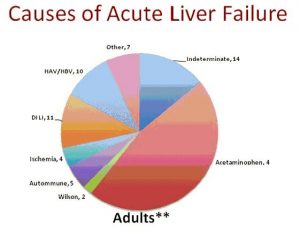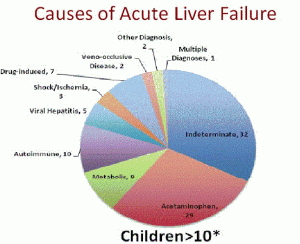ACUTE OR FULMINANT LIVER FAILURE
Acute liver failure (ALF) is a life threatening condition in which there is sudden and rapidly progressive damage to the liver developing over a few days or weeks in an otherwise normal individual. Its signs & symptoms typically start with jaundice & rapidly worsen. Patients may become forgetful, drowsy or confused & may progress to coma over few hours to days.

Causes of Acute liver failure
- Infection with hepatitis A or E virus

- Side effects of medicines (Anti-tubercular medicines, Paracetomol (crocin) poisoning, Ayurvedic drugs)
- Fatty liver during Pregnancy
- Wilson’s disease (Inherited defect of copper metabolism)
Acute Liver Failure Symptoms
- These include all the symptoms of Hepatitis, including fatigue, nausea, vomiting, and jaundice (yellow discoloration of the skin and eyes) which may deteriorate rapidly.

- Patients may become confused or sleepy and may go into coma
- Bleeding from the gums or stomach, and easy bruisability
- Early on, ALF is difficult to diagnose because it resembles other illnesses
Treatment of Acute Liver Failure
- Since ALF progresses so quickly, time is of the essence. It is important that patients with ALF be seen by doctors experienced in treating ALF and they should be managed at centers where liver transplantation facility is available.
- Majority of patients can be successfully treated in a dedicated Liver Unit with ICU support and medicines by specialised liver physicians (Hepatologists)
- A third of the patients may continue to deteriorate despite the best medical treatment and may need consideration for an urgent liver transplant.
- The indicators that Liver transplant may be necessary are: high level of jaundice (more than 12mg/dl), worsening clotting defect indicated by prothrombin time (PT) higher than 50 seconds, worsening mental status or coma, when the interval between beginning of jaundice and mental confusion/sleepiness is longer than 7 days, when the patient’s age is less than 10 or more than 40 years, when the cause of the ALF is not known, and worsening kidney function. Patients who have 3 or more of these indicators have less than 10% chance of surviving without a transplant and about 60% chance with one.